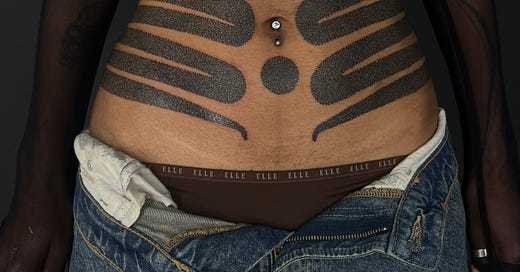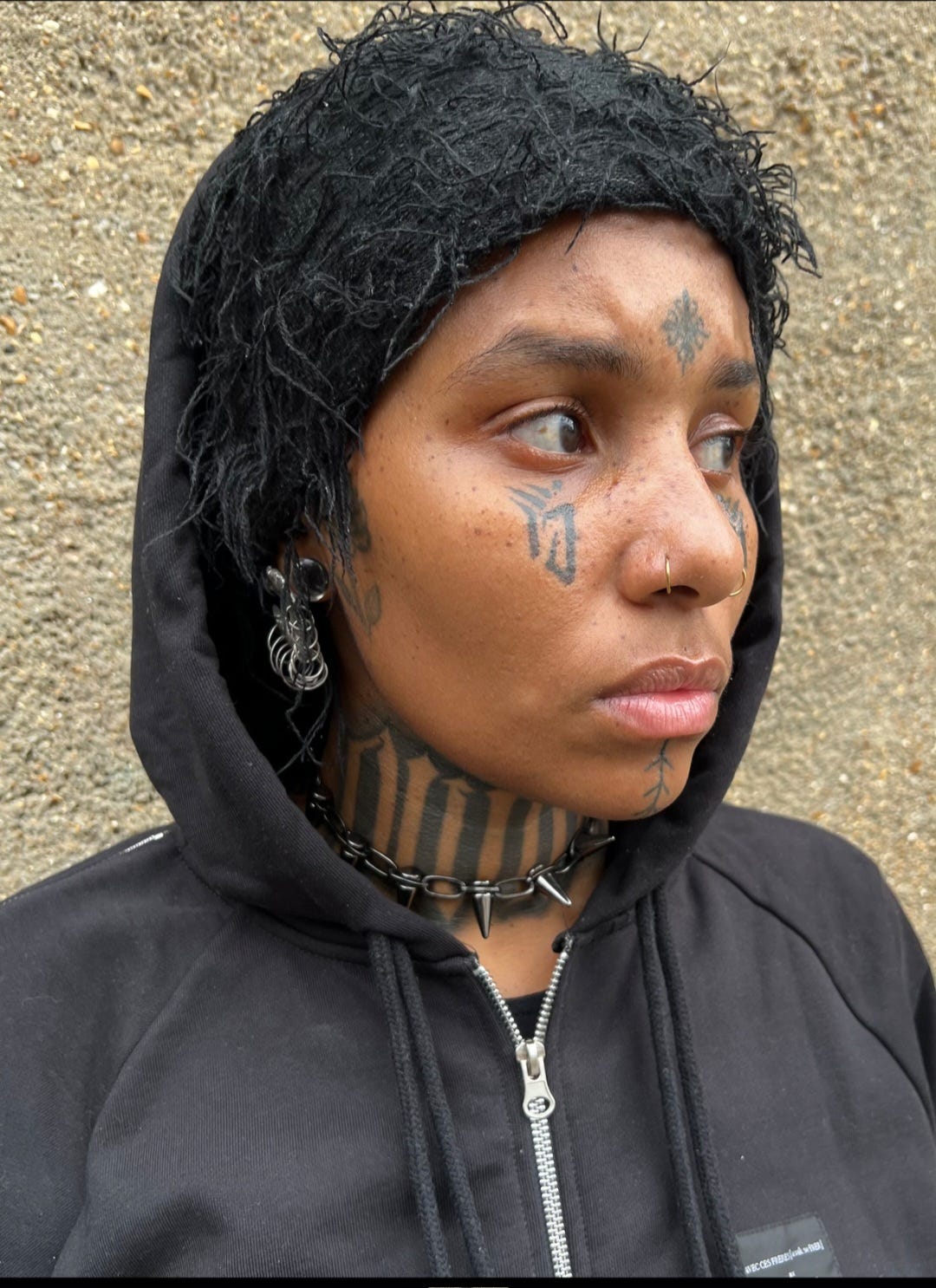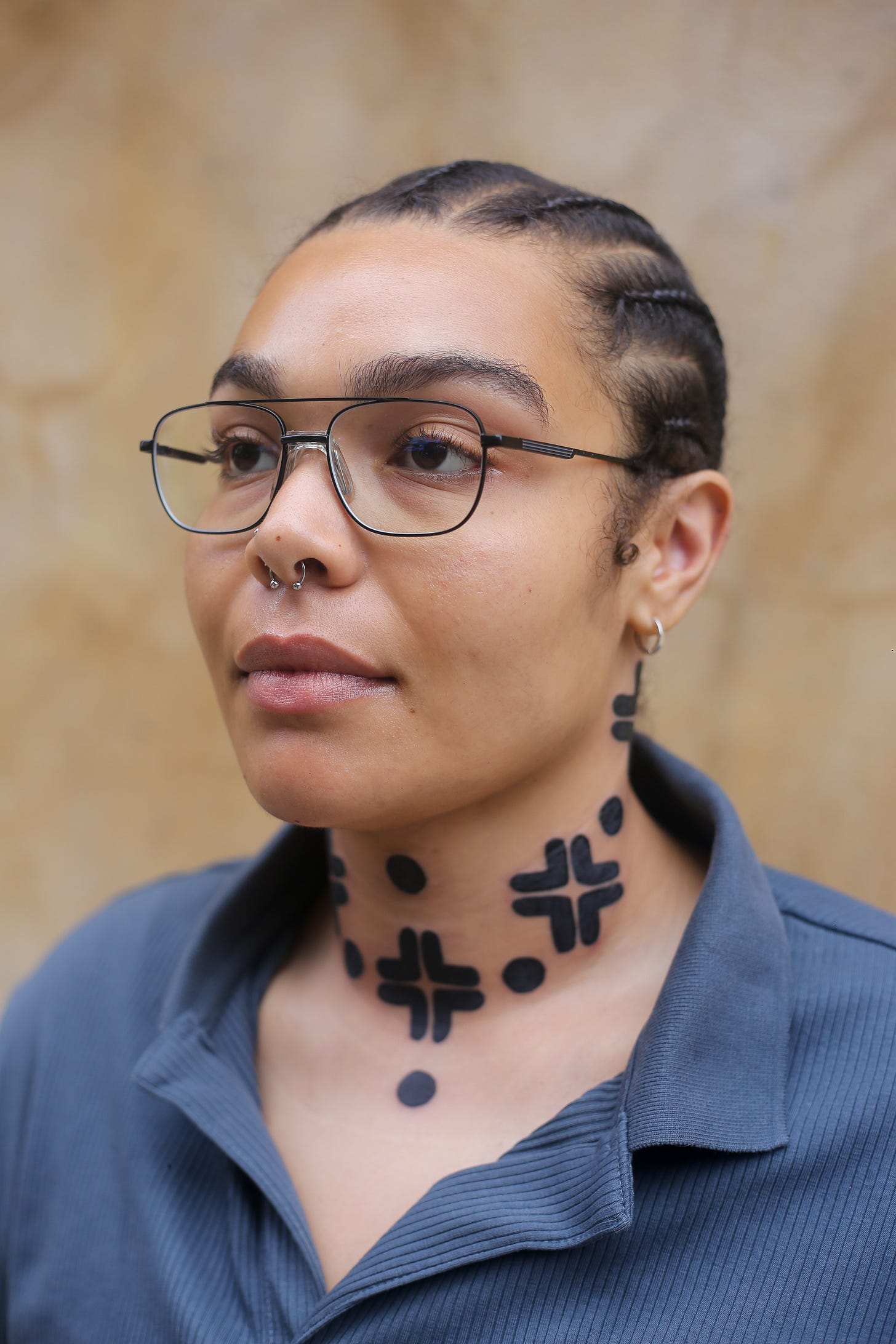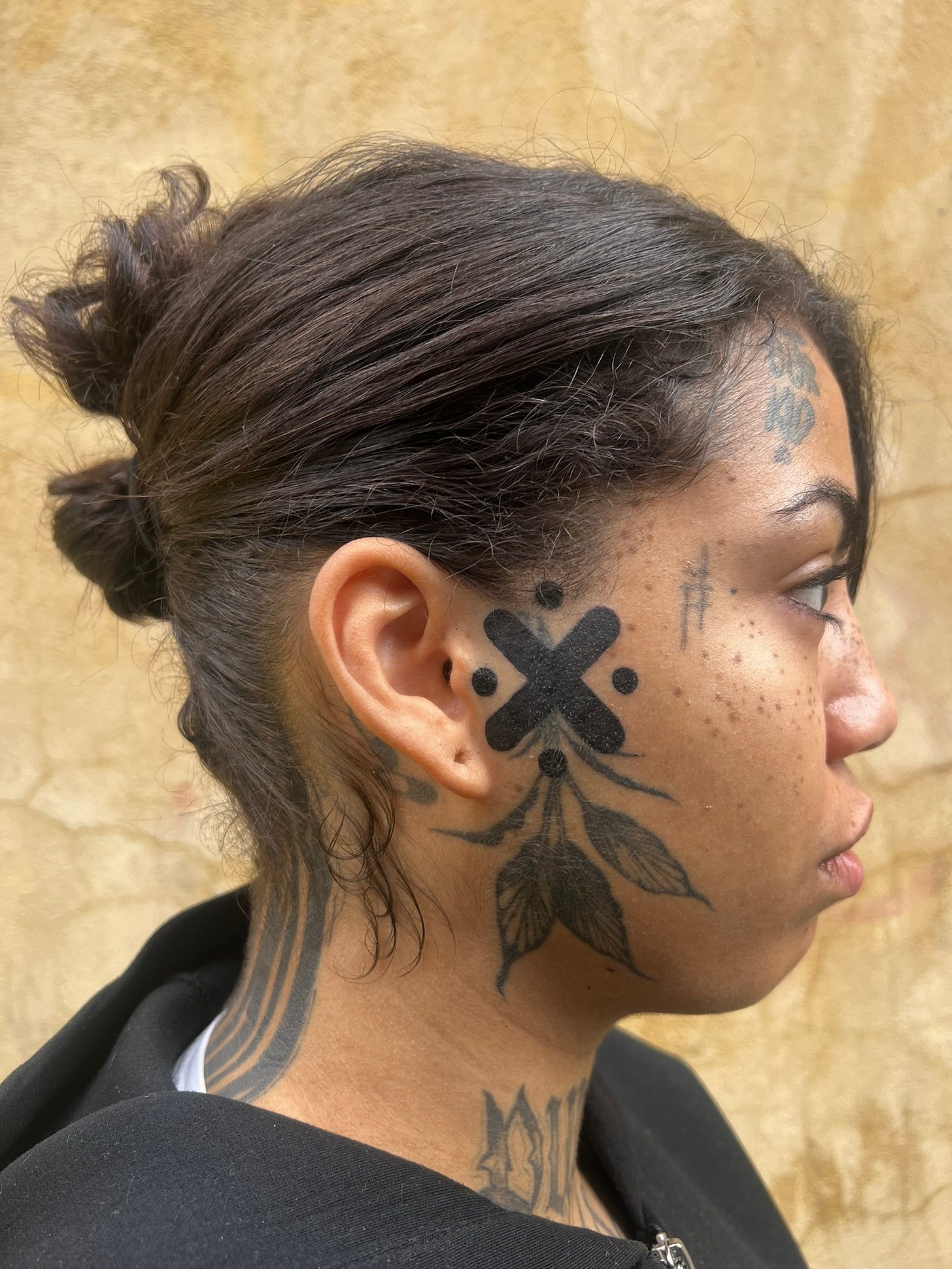“My tattoos are loud,” says British artist and tattooist Itonisha Rowe (Nish). Nish specializes in Afro-tribal-inspired art with an edge - like early 2000s cyberpunk art meets Adinkra. Nish herself tries to live a life detached from notions of respectability. She has face tattoos, dons black attire like a uniform, and generally doesn’t give a f*ck, and she wants you to know you can do the same.
Her journey as an artist started during her childhood in Moss Side, Manchester, UK. Art was a means of refuge and expression for an introverted kid who had a lot of exposure to the harsh realities of the world. “I grew up around a lot of violence, I saw police brutality from early on, and I experienced a lot of trauma,” Nish shares. Despite the challenges of navigating such a tense environment, she cultivated her artistic abilities and entered Camberwell College of the Arts (UAL) University in London to study Fine Art. After a year, she quit.
“I was a straightforward kid, I got good grades, I had good attendance, and I thought that university would be very similar,” Nish explains. However, her experiences in university made her see differently. Academically, it was difficult for her to reconcile with the criteria used to measure her work, which she had always created from a very organic and raw space. Nish worked to support herself, and she quickly realized that she was surrounded by wealthy classmates who weren’t taking the same risks she was. “I saw a lot of things that made me question if I wanted to be in the industry and if I wanted to rack up the debt,” she says.
After leaving university, Nish tried some other paths in search of her ideal career, including two years studying Creative Computing at Goldsmiths. Soon after, she was introduced to tattooing through her partner at the time. After stopping and starting for the first year or so, in late 2018 she eventually decided to commit to building her tattoo practice. Since Nish began her tattoo practice, one thing she aimed to make abundantly clear is that she’s allergic to conformity, which poses a challenge considering she lives in the UK.
According to Nish, the UK is “quite a conservative country.” Britain’s tenure as a first-class colonial power left a trail of British sensibilities in its wake, often by force, across the globe. Subsequently, the Windrush generation immigrants from its commonwealth arrived in the UK during the 1940s to early 1970s. The colonial social norms enforced in their home countries, particularly around the notion of respectability lie merely inches beneath the surface of British society. The Windrush generation’s descendants make up a very large portion of the Black British population, Itonisha being one of them.
Considering that Nish’s art is heavily influenced by African art and spiritual traditions, her target audience is primarily people from Black communities. However, she understands tattoos are still a taboo across many Black households, and because of this, there’s an underlined preference for more demure pieces over bolder and more distinctive tattoo art. “Many people may want to get something that can be approved by their parents. They are looking for designs that are appropriate, not loud,” Nish expounds.
And honestly, the prim and proper thing is not Nish’s meilleur. She doesn’t like the imposition of respectability politics which she believes strips people, especially Black people, of their ability to express themselves fully and freely. “I don’t want to tone it down, I just want people who are bold in their expression to engage with me in terms of my art,” she states.
Nish is determined to hold on to her artistic integrity, and while she recognizes that she may not always fit the trends, she won’t compromise on it. Reflecting on the state of artistry in the tattoo industry, she’s noticed an increasing uniformity that honors a profit motive but denies an artistic one. The industry itself feels farther away from the art world for various factors, but most notably due to increased commercialism. “People have families so I’m not judging, but the way that art in general moves forward, or grows into new directions is due to people sacrificing their comforts for things they believe in,” she says.
The necessary work to shift culture to create room for artistic exploration is a tireless job done by courageous people, but there are often vacancies. Nish wants to do the job. “As an artist, I am looking at this (the industry), and I want to fill in a space that’s not as occupied. I want to bring more substance and more spirit to Black tattoo art” she declares.






